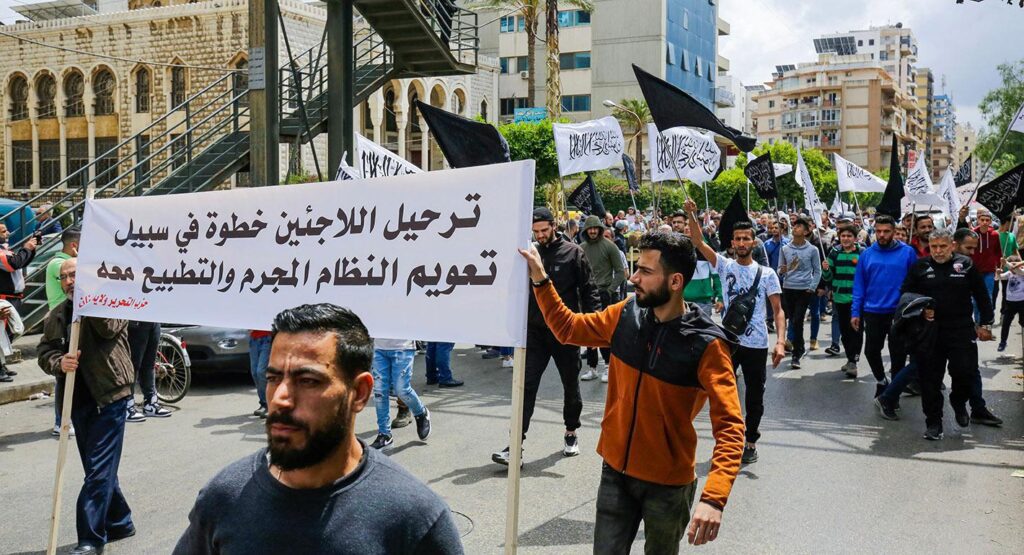With this year’s Brussels VIII Conference on the future of Syria taking place on May 27, Lebanese political parties and the country’s caretaker government have started preparing to apply further pressure on European Union countries and United Nations organizations regarding the displacement file.
In light of the recent one billion euros four-year financial package provided by the EU to Lebanon, outrage by mainstream political parties and media has been at an all-time high, with the package being described by mainstream news channels such as MTV as a “bribe” to keep displaced Syrians in Lebanon.
Relations with the Assad regime are also central to the conference, as Lebanon has reportedly received a message from the Syrian government to carry to Brussels, consisting of a condemnation of the conference organizers’ decision not to invite Syria, considering it is the primary stakeholder in the issue.
What to Expect from the Lebanese Government Delegation
In early May, Brussels hosted civil society dialogue sessions during which civil society organizations (CSOs) focused on Syrian refugee issues are consulted prior to the conference.
While the inputs of CSOs have likely stressed the need to reach an overarching political agreement to the issue, rejected the forced return of refugees into potentially dangerous areas in Syria, and urged for aid-development material and operational capacitation, the Lebanese government delegation is expected to argue for the exact opposite.
On one hand, the Lebanese state is likely to pressure conference stakeholders for the return of refugees and the rejection of Lebanon being a host country for asylum seekers.
On the other hand, it is also likely to continue to demonize the role played by United Nations agencies, especially the United Nations High Commissioner for Refugees (UNHCR), be it in direct or indirect fashion.
Importantly, and as has historically been the case, the Lebanese intervention at Brussels is likely to remain in the realms of a plea for aid and charity, far from proposing a political economy solution to such a chronic issue, leaving the root of the matter unaddressed and going back to the use of palliative solutions.
Finally, the message from the Assad regime, should the Lebanese delegation decide to carry it to Brussels, represents a step in favor of regional pressures to homogenize normalization with the Assad government in the Arab region.
The Assad Regime Army Kills Syrian Man Deported from Lebanon
On Thursday May 9, Syrian regime forces killed 27-year old Syrian man Mahmoud Hassana at a checkpoint in Homs. According to the Access Center for Human Rights, Hassana was attempting to leave regime-controlled areas after being deported from Lebanon.
After his deportation to Syria, Hassana received a notice to join mandatory service in the Syrian army within 15 days, after which he tried to escape towards opposition-controlled areas in the north.
Little prospects for human rights are left for Syrian refugees, between the rising crackdowns and violence in Lebanon, the Syrian regime’s treatment of returnees and the EU’s unsustainable and interest-driven management of the displacement file.
Indeed, the Union’s latest agreement with Lebanon, which emphasizes border management and cracking down irregular migration as opposed to development and aid, mirrors agreements with other Arab states such as Egypt and Libya, which have resulted in a plethora of human rights violations including the sinking of migrant ships and the killing of those on board.
